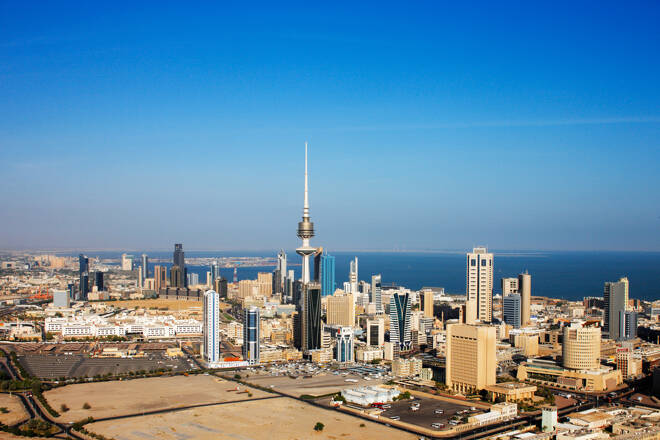Advertisement
Advertisement
Resignation Of Entire Kuwait Government Maybe Positive For Oil
By:
Kuwait's longstanding plans to boost crude oil production from around 2.6 million bpd to at least 4 million bpd have been stalled by arguments over spending, but the resignation of the government may end this impasse
Key Highlights
- Kuwait has plans to increase oil production from 2.6 million bpd to 4 million bpd
- These plans have been stalled by political infighting over increasing spending
- These arguments may abate with a new government in place
The resignation yesterday of the entire government of Kuwait, including its oil minister, may be exactly what the country needs in order to press ahead with long-delayed plans to increase crude oil production to a minimum of 4 million barrels per day (bpd) by 2040 – up from a current average of around 2.6 million bpd.
These plans have long been predicated on an intended investment of at least US$6.1 billion in exploration over the next five years. This US$6 billion+ investment plan from the Kuwait Oil Company (KOC) involves drilling 700 wells per year over the investment period (up from approximately 300 wells), having also completed to date around 93 per cent of the heavy oil plant project in the promising South Ratqa field.
KOC had already announced last year contract awards of around KWD350 million (US$1.16 billion) to a range of international oil companies for the supply of 31 oil rigs. The largest of these (10 rigs) went to China National Petroleum Corporation, with the remainder going to a mix of seven foreign firms, from Oman, the UK, and Egypt, plus domestic Kuwaiti companies.
Oil Production Boost Stymied By Spending Arguments
The key problem in moving ahead with these plans, however, was that implementing them requires a firm consensus to increase national budget spending, and this has not been easy to achieve.
Before the recent run-up in oil prices, Kuwait’s budget deficit had increased by 175 percent in 2020-21 to KWD10.8 billion – the highest deficit in its budgetary history. In response, the Governor of Kuwait’s Central Bank, Mohammad al-Hashel, highlighted that there was ‘an urgent need for economic reforms, and all parties, especially the executive and legislative authority, must work to address all imbalances.’
It is the Kuwaiti National Assembly that has to authorise an increase in pre-agreed government borrowing, including allowing for any international bond offering (none had occurred to that point since 2017) and this they perennially refused to do.
Last June, Kuwait’s parliament approved the 2021-22 state budget but failed to resolve the long-running standoff between the then-government and opposition that has blocked economic reforms. The impasse has also negatively impacted the ability of Kuwait’s US$580 billion sovereign wealth fund – the Kuwait Investment Authority – to make effective decisions to direct investment at boosting the output from the country’s oil sector.
As a result of this previous lack of any meaningful funding strategy, the ‘Big Two’ global rating agency, S&P, cut Kuwait’s key foreign currency credit rating by one notch (to A+ from AA-) in July last year. Even less propitiously, S&P kept its outlook on the country ‘negative’.
About the Author
Simon Watkinsauthor
Simon Watkins is a former senior FX trader and salesman, financial journalist, and best-selling author. He was Head of Forex Institutional Sales and Trading for Credit Lyonnais, and later Director of Forex at Bank of Montreal. He was then Head of Weekly Publications and Chief Writer for Business Monitor International, Head of Fuel Oil Products for Platts, and Global Managing Editor of Research for Renaissance Capital in Moscow.
Advertisement
